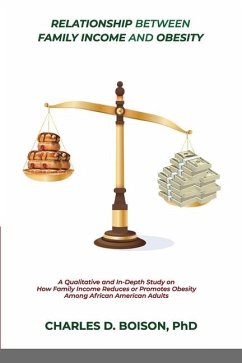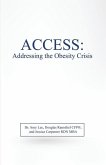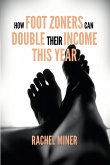Obesity is a chronic disease that is caused by a number of factors such as diet, genetics, physical inactivity, and poor dietary habits. This book is the product of a research which focused on how income affects obesity among a target population in the African American community in Durham, North Carolina (NC). It has been noted that chronic diseases that are diet-related, for example, obesity, diabetes, hypertension, and high cholesterol, affect African Americans disproportionately, especially those who earn low income. Some studies have also reported that those who make higher income have higher rates of obesity. This inconsistency and gap in the literature prompted research on this topic. Therefore, the purpose of this research was to study the relationship between family income and obesity among African Americans. The study sought to address the key factors that contribute to low family income among African Americans in Durham, NC and the ways those key factors contribute to obesity among African Americans in Durham, NC. This study employed a qualitative approach by using an individual interview method to glean the lived experiences of participants in Durham, NC. Thirty participants were interviewed and themes from the interviews were analyzed. The health belief model was chosen as the theoretical framework for this study to understand the data and explain beliefs, attitudes, and health behaviors. Key results indicated that low family income contributes to obesity. The study contributes to social change by recommending that policy makers advocate for an increase in national minimum wage, encourage educational approaches to prevent obesity, promote good eating habits, and promote adequate physical activity among African Americans.
Hinweis: Dieser Artikel kann nur an eine deutsche Lieferadresse ausgeliefert werden.
Hinweis: Dieser Artikel kann nur an eine deutsche Lieferadresse ausgeliefert werden.








